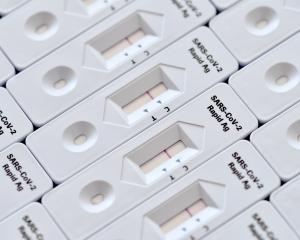
In a statement, a spokesperson said it was no longer needed.
"Aotearoa New Zealand has passed the emergency stage of its Covid-19 response, with the virus endemic in our communities. The results of any Covid-19-focused prevalence survey would be unlikely to meaningfully alter any current public health response as there are only two pandemic-related mandates still in place."
The remaining mandates were for masks to be worn in healthcare facilities and for positive cases to isolate for seven days.
"The ministry accepts it took longer than expected to reach this conclusion, given the challenges of a multi-stakeholder, complex project developed during the health reforms," the statement said.
The two surveys were announced by former director-general of public health Ashley Bloomfield. In July 2022, he said an infection survey would test 100 people a week over a six-month period. The second survey, a seroprevalence survey, was a blood test to see if people had previously had Covid-19.
"Both are well developed and nearly ready to start rolling out in the next few weeks," he said at the time.
In November, deputy director of health Andrew Old told RNZ it had taken longer than expected and would be delayed until July this year, citing Covid-19, winter illness and health reforms as the the reason.
Today's announcement the surveys had been abandoned was disappointing news to Covid-19 modeller Dion O'Neale.
"It's good to have it confirmed as cancelled, rather than perpetually being told it's a month away, or six months away."
He said the infection survey would have provided information which could help with modelling the impact of changing the current isolation rules.
If the survey showed people only a small portion of people with Covid-19 were isolating, then reducing the isolation period, or removing it completely wouldn't have a large impact. If most people are still following isolation rules, then removing them "could have a huge impact", he said.
"Trying to model what the consequences are of changing case isolation, and the absence of knowing that gets trickier."
He was also concerned at how prepared New Zealand was for another serious disease outbreak, where a prevalence survey could provide valuable information.
"It has taken us three years to not get one going. We don't want to be in a situation where we have an emergency again, where we need to have a prevalence survey up and running within weeks - and we're not prepared for one."
The seroprevalence survey would be useful to see who has had Covid-19 across the country and where the burden of long Covid may lie, he said.
A Ministry of Health spokesperson said prevalence surveys were expected to be a key tool in future public health surveillance, and said will benefit from the work which has been done on the cancelled project.












